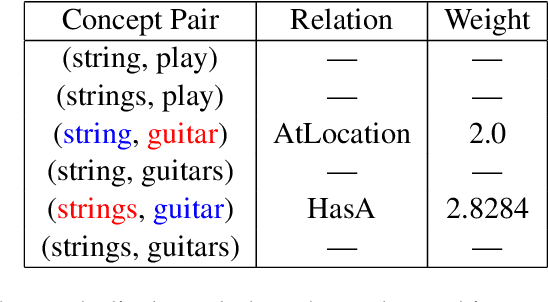Revisiting the Prepositional-Phrase Attachment Problem Using Explicit Commonsense Knowledge
Paper and Code
Feb 05, 2021



We revisit the challenging problem of resolving prepositional-phrase (PP) attachment ambiguity. To date, proposed solutions are either rule-based, where explicit grammar rules direct how to resolve ambiguities; or statistical, where the decision is learned from a corpus of labeled examples. We argue that explicit commonsense knowledge bases can provide an essential ingredient for making good attachment decisions. We implemented a module, named Patch-Comm, that can be used by a variety of conventional parsers, to make attachment decisions. Where the commonsense KB does not provide direct answers, we fall back on a more general system that infers "out-of-knowledge-base" assertions in a manner similar to the way some NLP systems handle out-of-vocabulary words. Our results suggest that the commonsense knowledge-based approach can provide the best of both worlds, integrating rule-based and statistical techniques. As the field is increasingly coming to recognize the importance of explainability in AI, a commonsense approach can enable NLP developers to better understand the behavior of systems, and facilitate natural dialogues with end users.
 Add to Chrome
Add to Chrome Add to Firefox
Add to Firefox Add to Edge
Add to Edge